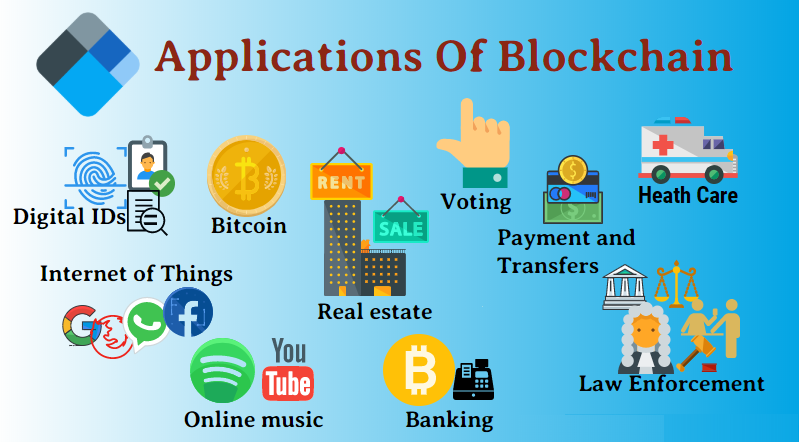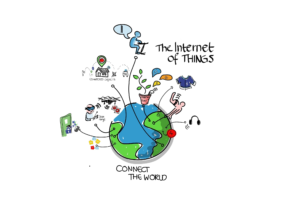Blockchain Technology Beyond Bitcoin Real-World Applications
Blockchain technology, initially known for its association with Bitcoin, is rapidly expanding beyond cryptocurrencies to revolutionize numerous sectors. Imagine a world where supply chains are transparent, contracts are self-executing, and identities are secure. This is the potential of blockchain beyond Bitcoin. This article will delve into the exciting real-world applications of blockchain technology, analyzing the problems it solves and the opportunities it presents. We’ll explore use cases in various industries, showcasing the versatility and impact of this transformative technology. The following sections will systematically examine these applications in detail.
1. Transforming Supply Chain Management with Blockchain
1.1 Enhanced Transparency and Traceability
Blockchain’s distributed ledger technology (DLT) provides an immutable record of every step in a supply chain, from origin to consumer. This real-time visibility into product movement enhances transparency and traceability, empowering businesses to track products and combat counterfeiting. For instance, a food company could trace the origin of its ingredients, ensuring product authenticity and safety. By leveraging blockchain, consumers can readily access product information, building trust and confidence.
1.2 Streamlined Processes and Reduced Costs
Blockchain’s automation capabilities streamline supply chain processes, reducing the need for intermediaries and paperwork. This automation can lead to significant cost reductions by eliminating inefficiencies. Imagine a system where transactions are automatically recorded and verified, facilitating rapid and secure transfers. This can lead to significant time savings and cost reductions for businesses involved in complex supply chains.
1.3 Improved Collaboration and Communication
Blockchain fosters collaboration among stakeholders across the supply chain by creating a shared, transparent platform. Businesses can securely share information and coordinate actions, resulting in more efficient operations. Real-time updates on product movement can be shared with all stakeholders in the chain, streamlining communication and decision-making.
2. Revolutionizing Digital Identity
2.1 Secure and Decentralized Identification
Blockchain’s decentralized nature allows for the creation of secure and verifiable digital identities. This eliminates the reliance on centralized databases and minimizes the risk of identity theft. Individuals can have full control over their digital identities, choosing who and when to share information. For example, individuals can create their own digital wallets using blockchain technology, containing their personal data and verifiable credentials.
2.2 Streamlined Verification Processes
By leveraging blockchain, the verification of credentials and documents can be significantly streamlined. Institutions can verify the authenticity of degrees, licenses, and other credentials in an instant. This efficient process avoids fraud and ensures that only verified individuals access specific resources, enhancing the security and efficiency of verification systems.
2.3 Enhanced Trust and Transparency
By leveraging blockchain, the verification process itself becomes transparent and auditable. All parties involved can view the verified credentials in an immutable and publicly verifiable record. This approach builds trust and reduces fraud.
3. Empowering Decentralized Finance (DeFi)
3.1 Decentralized Lending and Borrowing
Blockchain technology enables peer-to-peer lending and borrowing platforms, providing financial access to individuals and businesses who may lack traditional banking options. Smart contracts automate financial agreements, ensuring trust and security in transactions without the need for intermediaries.
3.2 Transparency and Security in Financial Transactions
Transactions recorded on a blockchain are transparent and secure. The immutable nature of the ledger makes fraudulent activities difficult, enhancing the overall security of financial transactions. Blockchain-based financial systems offer significantly improved security compared to traditional banking methods.
3.3 Innovative Financial Instruments
Beyond traditional financial instruments, blockchain allows for the development of novel financial products and services. Decentralized autonomous organizations (DAOs) and other innovative financial tools open new opportunities for investment and financial inclusion.
4. Improving Healthcare with Blockchain
4.1 Secure and Interoperable Patient Records
Blockchain can create secure and interoperable patient records, enabling secure access and sharing of medical information between healthcare providers. This improved data sharing facilitates coordinated patient care and reduces medical errors.
4.2 Facilitating Clinical Trials and Research
Blockchain can streamline clinical trials and research by creating a secure, transparent platform for data management. This enhanced data management can facilitate faster research and development of new medications and treatments.
4.3 Improving Transparency and Accountability in Pharmaceutical Supply Chains
The pharmaceutical industry can benefit from blockchain by ensuring the transparency and accountability of its supply chains. Tracking medications throughout the supply chain can reduce counterfeiting and ensure product authenticity.
Related Post : How Biotech Is Pushing the Boundaries of Medicine and Healthcare
5. Enhancing Intellectual Property Rights
5.1 Secure and Verifiable Ownership Records
Blockchain’s inherent security and immutability make it ideal for tracking intellectual property rights. The creation of digital certificates and records on a blockchain ensures verifiable ownership and reduces the risk of infringement. This provides legal protection for intellectual property.
5.2 Secure and Efficient Licensing and Licensing Processes
Blockchain facilitates transparent and efficient licensing and licensing processes for intellectual property rights. Smart contracts can automate licensing agreements, reducing administrative burdens and improving efficiency.
5.3 Increased Transparency and Accountability
Increased transparency and accountability through blockchain allows for faster and more efficient resolution of intellectual property disputes and increases trust between parties involved.
In conclusion, blockchain technology is evolving beyond Bitcoin, showcasing a broad spectrum of real-world applications. From supply chain management to digital identity, the technology offers unique advantages in security, transparency, and efficiency. Embracing this technology presents exciting opportunities for businesses and individuals seeking innovative solutions. Further research and development are essential for realizing the full potential of blockchain in various sectors, from healthcare to finance. Explore the diverse possibilities and discover how blockchain can transform your operations. Visit our website to learn more about implementing blockchain solutions.
Share this content:














Post Comment